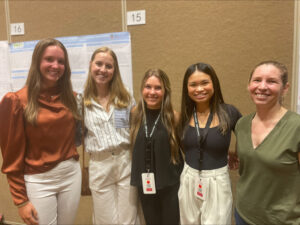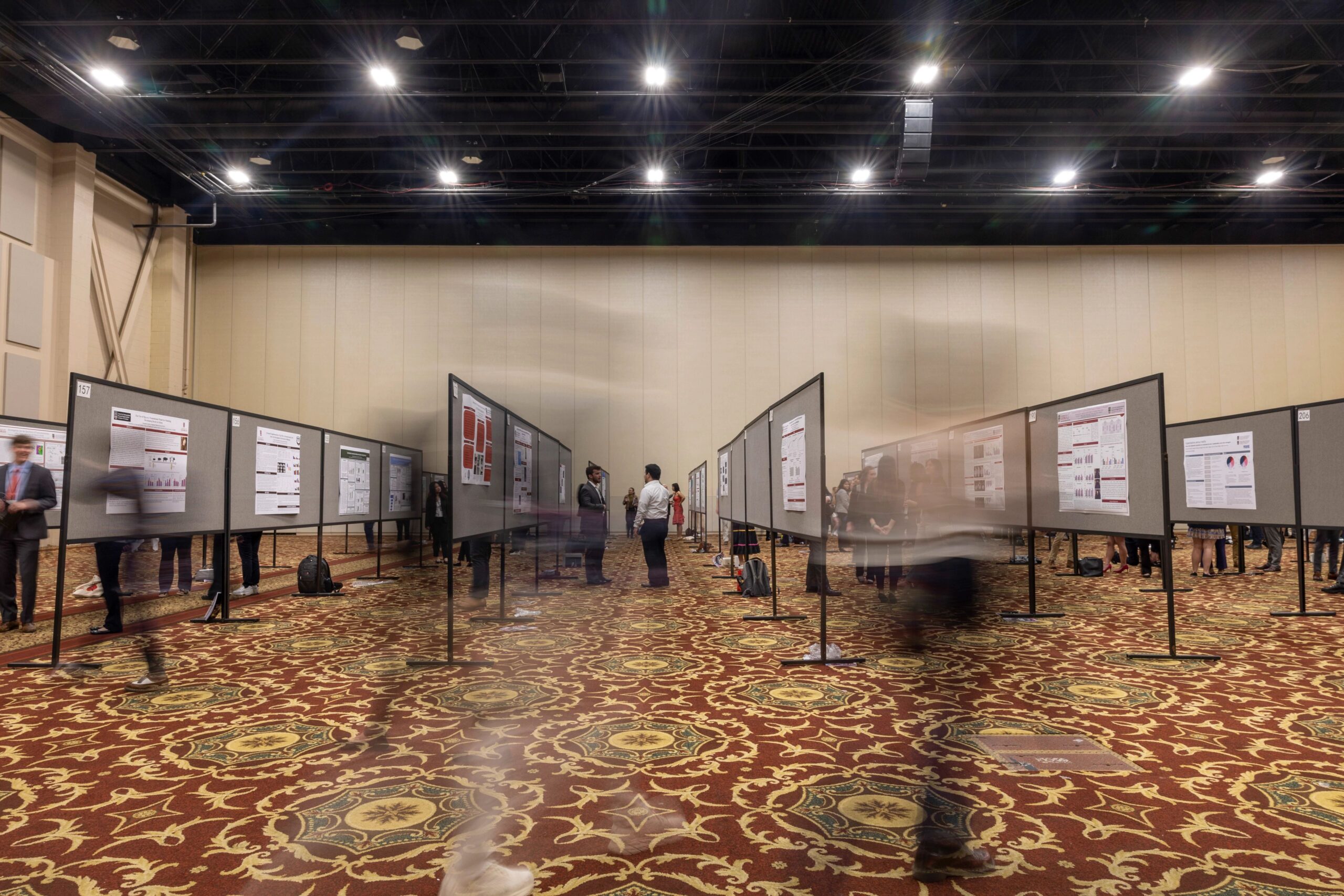On a sunny Monday afternoon in early April, the Grand Ballroom at the Classic Center in Athens was taken over by rows of poster boards, affixed with over 380 posters representing undergraduate research spanning 188 different majors.
This year marked the 25th anniversary of the CURO Symposium, the marquee event for the Center for Undergraduate Research Opportunities (CURO), which connects undergraduate students with research opportunities across campus.
Among the posters was one titled, “The Association Between Gym Frequency, Intensity and Daily Step Count” by senior health promotion major Bansari Shah.
“I was a little bit nervous about making the presentation because I never made a poster like that,” Shah said.
Putting together an academic poster was just one in a string of new experiences she’s had working in the Physical Activity & Community Environment (PACE) Lab, led by health promotion and behavior associate professor Jennifer Gay.
“I really didn’t know what I was doing when I first came into PACE Lab, but [Dr. Gay] walked me through what I needed to do, and she gave me projects that I first thought I couldn’t handle. But then at the end of the day, I was able to create something really good,” said Shah.
For many students at UGA and the College of Public Health, getting involved with research is a first important step in their career journeys. Students who are interested in physical activity or community-based interventions often find their way to the PACE Lab, which studies how social and built environments influence physical activity.

Associate professor Jennifer Gay, right, poses for a photo at the CURO symposium, at which several students presented research from the PACE lab.
In addition to having students work on funded projects, Gay pushes them to develop an independent research project of their own. The project offers a low-stakes environment to learn by doing, she said.
“Those skills of barrier identification and problem solving, critical thinking, all come from doing a research experience,” said Gay. “By allowing them to do it and engage, to make mistakes, to be successful, I feel like they learn more than if I just gave them really small tasks to do.”
This year, the lab received funding from CURO to conduct a study testing the impact of short exercise sessions on a variety of blood markers. Shah was in charge of writing and submitting the study proposal to the IRB. Jasmine Udeshi, a fourth-year health promotion major was one of the project leaders and the team’s certified phlebotomist.
“I am thankful PACE Lab has unique tasks and challenges that do not get repetitive,” she said.
Udeshi, Shah and their six PACE Lab teammates worked to design the study, recruit participants, take blood samples and measure different biomarkers pre- and post- a short burst of exercise.
“I remember learning about all these different types of biomarkers, like glucose and cortisol, in our biology or biochemistry courses, but it’s all just textbook stuff. It was really interesting to see how the biomarker has changed firsthand with different types of physical activity,” Shah said.
Learning the ropes of conducting research and problem-solving on their own is a critical skill Gay wants her students to develop.
“I think that’s something that I’ve encountered with almost all of my undergrads, is this hesitation to do it on their own,” she said. “And that’s why I push them so much.”
Udeshi credits her experience in the lab with building her confidence to try new and challenging things on campus. In March, she stepped out of her comfort zone again—this time as one of two undergraduate students presenting at the 2024 Southeast Regional Clinical & Translational Science Conference, along with senior health promotion major and lab mate, Meredith Wessel.
“It was so rewarding to just be in an environment of such highly skilled people, people with a lot of knowledge about the public health field. I think it solidified both of our interests in moving towards public health because—I guess I didn’t realize how many different routes there were,” said Udeshi.
This year, Shah was among 22 students from the College of Public Health to present at the CURO Symposium, and one of 632 total participants from across campus.
Engaging in some form of research as an undergrad is a no brainer for incoming public health students, she said.
“And it doesn’t have to be necessarily in biology or public health or chemistry, just something you’re interested in researching and expanding your knowledge. It’s also the whole process of how to get from start to finish; it’s really rewarding.
Written by Lauren Baggett







